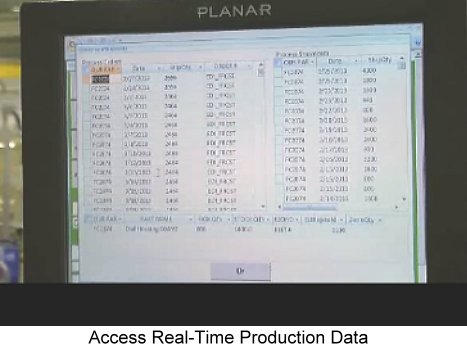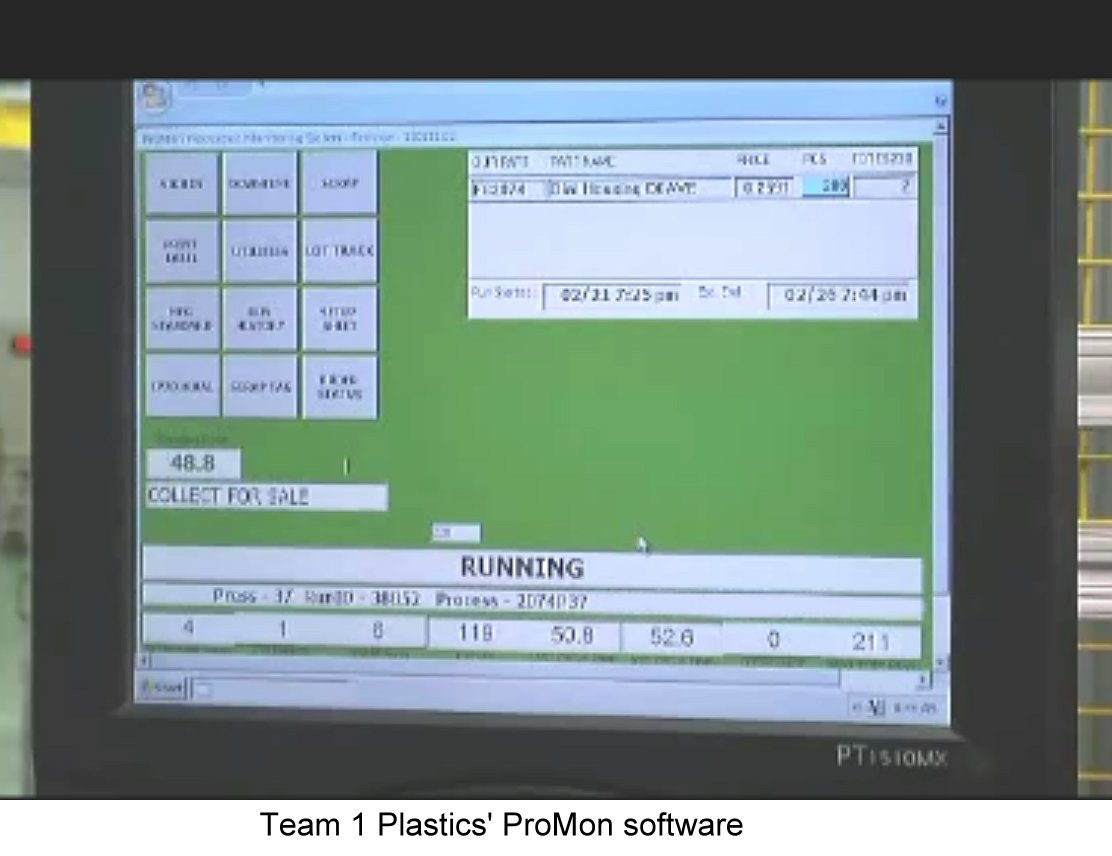2 AM Production Emergency?
What happens in your plastics manufacturing facility at 2 AM when your production team is struggling with a part? Is it automatically a “5-alarm” emergency? Or, do your employees have the information they need to make an informed decision – like knowing that enough product has already been made for the order so they can shut down the part for the rest of the shift?
Does your Enterprise Resource Planning (ERP) software provide real-time production information? According to Glenn Nowak’s article, The Value of Real Time, “Too many manufacturers miss out on critical decision-making pieces of the puzzle because of a lack of timely production details. A lack of real-time information can cause crippling effects throughout the entire enterprise. Live data, on the other hand, can reduce the loss of time, resources and, ultimately, money from the bottom line.”
Your ERP should provide the information that help your employees make a good decision at 2 AM. Nowak pointed out that “Out on the shop floor, the robots and work centers are gathering tremendous amounts of data. Production details regarding performance and maintenance are being tracked, as is in-depth information about the products being made.” That data should be readily available to your employees whenever they need it.
Maybe you don’t have an ERP – many small and medium-sized businesses (SMB) don’t, according to the article, ERP a Big Challenge for SMBs, by Drew Robb “…87 percent of potential ERP buyers fall under the SMB category, which it defines as companies with annual revenues of less than $100 million. The vast majority of these companies do not currently possess an ERP system.”
 Team 1 Plastics, a plastic injection molding company for the automotive industry, developed its own production monitoring system, called ProMon, that allows a paperless production and quality system on the manufacturing floor. Networked thin-client computers, located at each of the presses, deliver work instructions and quality check points. The touch screens allow the machine operators to interact with them. The operators can quickly and easily record any quality checks they made on the part. And, they do have the information they need to make a good decision at 2 AM.
Team 1 Plastics, a plastic injection molding company for the automotive industry, developed its own production monitoring system, called ProMon, that allows a paperless production and quality system on the manufacturing floor. Networked thin-client computers, located at each of the presses, deliver work instructions and quality check points. The touch screens allow the machine operators to interact with them. The operators can quickly and easily record any quality checks they made on the part. And, they do have the information they need to make a good decision at 2 AM.
Gary Grigowski, Co-owner and Vice President, said that Team 1 Plastics does a “…good job of integrating technology that services what our customers need. Whether it is our ability to easily take in orders, quickly integrate them, consider impact of new order on scheduling, or integrate 100% automatic quality testing.” Speaking of the ProMon system, Grigowski said that “since it was internally developed, it is specifically designed for Team 1’s systems and can easily be updated to make it more efficient.”
Joshua Nye, IT Manager, echoed Grigowski on the advantages of Team 1 Plastics’ proprietary ProMon software, “The biggest advantage by far is customization. Basically, if the data exists, we can deliver it to you just about anywhere you want it, and how you want it displayed … If you go with a canned [third-party developed software] system, there will be minor tweaks and views you can create; but overall, you fit into their system rather than their system changing to fit you. Our system is specifically built to work in the way Team 1 has been designed to work.”
But, proprietary software comes with its own set of challenges. Your internal IT department must be able to program the software, including updates driven by customer or employee requests. Nye said, “The priority is always to get the application you are working on fixed or updated with new features as they are needed, however with a steady flow of requests, new ideas, etc., it isn’t always easy to keep up on properly documenting the code, creating, or revising any knowledge base.”
And, with proprietary software, the IT team is literally on their own – there is no Support team that they can call. “When we have a problem or an issue arise, we are the only ones that can really fix it. There is no support center to call to work through the issue; there is no FAQ on a product website to lean on. Big software companies have the developers, and they also employ technical writers and such to create their knowledge base, FAQ, and support sections,” said Nye.
Maybe these IT challenges are more than your company wants to handle. In that case, there are lots of third-party software ERP options for you. And, there is a lot of advice on choosing and implementing them.
Manufacturing Tech Insights dedicated its entire December 2015 magazine to ERP systems, including its list of the Top 10 Manufacturing ERP Solution Providers for 2015.
The Resources section of SoftwareAdvice.com’s website has articles, e-books, and research to help you, including Key Criteria For ERP Software Selection, which offers “guidelines and tips before embarking on an ERP selection project.”
In EnterpriseAppsToday.com, Drew Robbs shares his 7 ERP Implementation Tips:
- Avoid ERP Rigidity
- Consider ERP Customization Needs
- Involve Upper Management in ERP Implementation
- Focus on Early ERP Expectations
- Get Right ERP Implementation Partner
- Pay Attention to Reporting
- Head to the Cloud
Forrest Burnson, summed up what you need to consider when shopping for a third-party ERP system in his Enterprise Resource Planning Software Buyer Report – 2015, “For prospective buyers, the task of selecting and implementing a new ERP system can be daunting. When selecting a solution, buyers should take into account not only their current needs, but what their needs will be five or 10 years down the road, as well as whether they’ll be able to integrate existing and future data in the new system.”
Burnson continued, “Buyers should also weigh the benefits and drawbacks of different pricing models, and ensure they have a clear understanding of what the total cost of ownership will be depending on which path they take. Finally, they need to consider how well-equipped their IT department is to handle such a massive undertaking, and should seek outside consulting and implementation services if they are unable to do it in-house.”
Whichever ERP system your company uses, make sure that it provides the information your employees need at 2 AM.








Danielle Sheldon says:
Jeffery Carrel says:
Jeffery Carrel says: